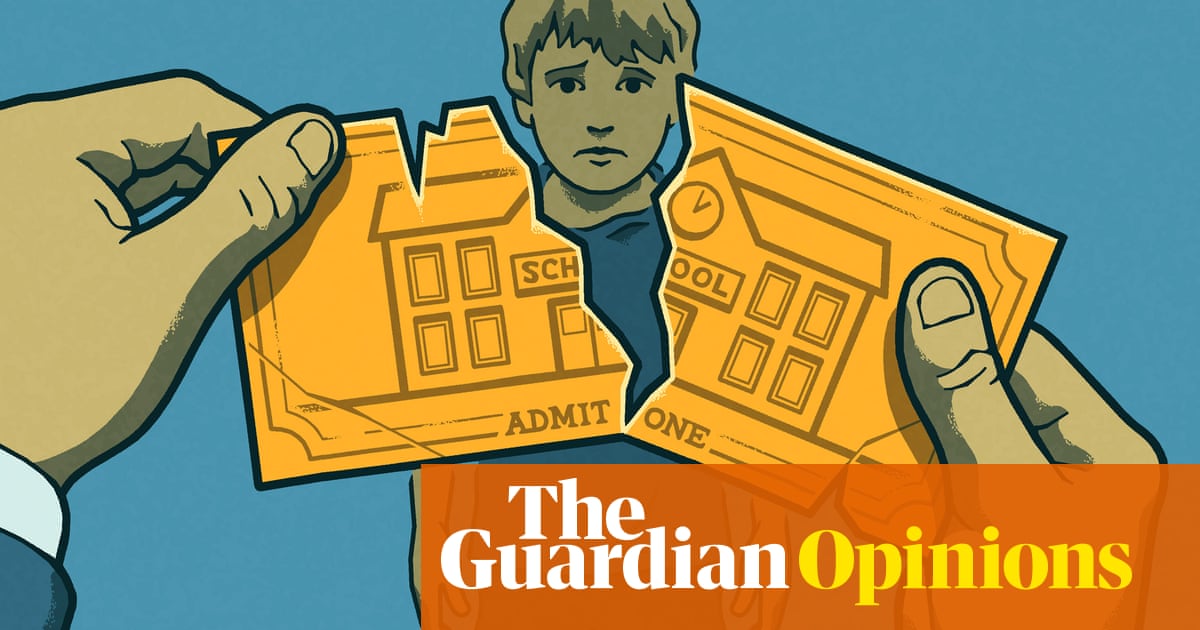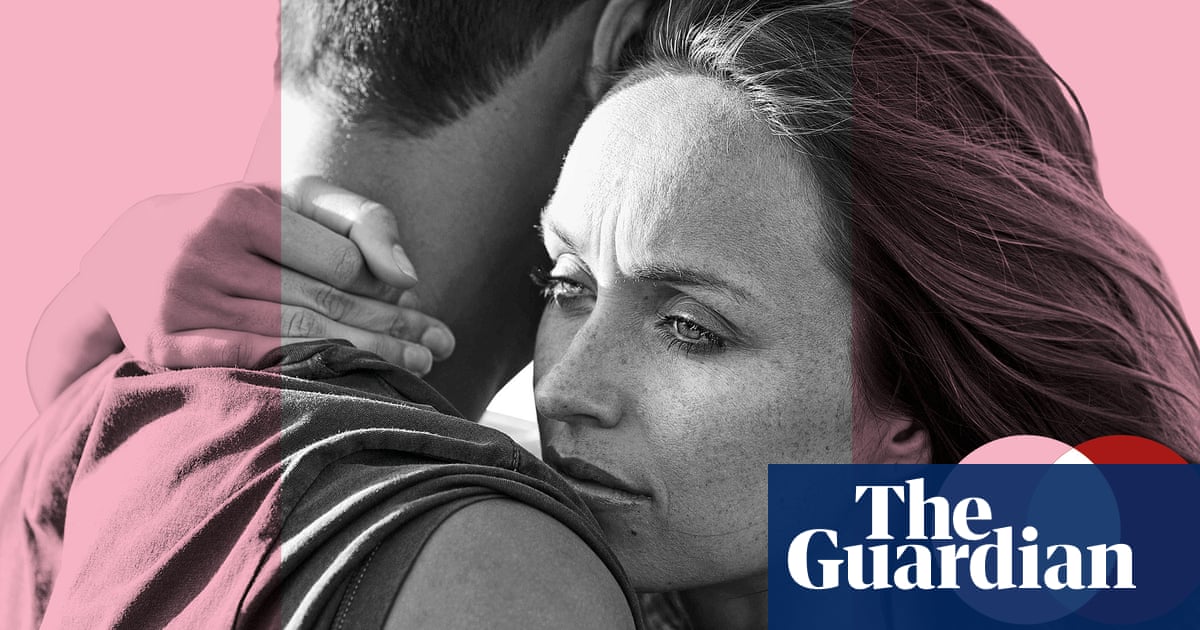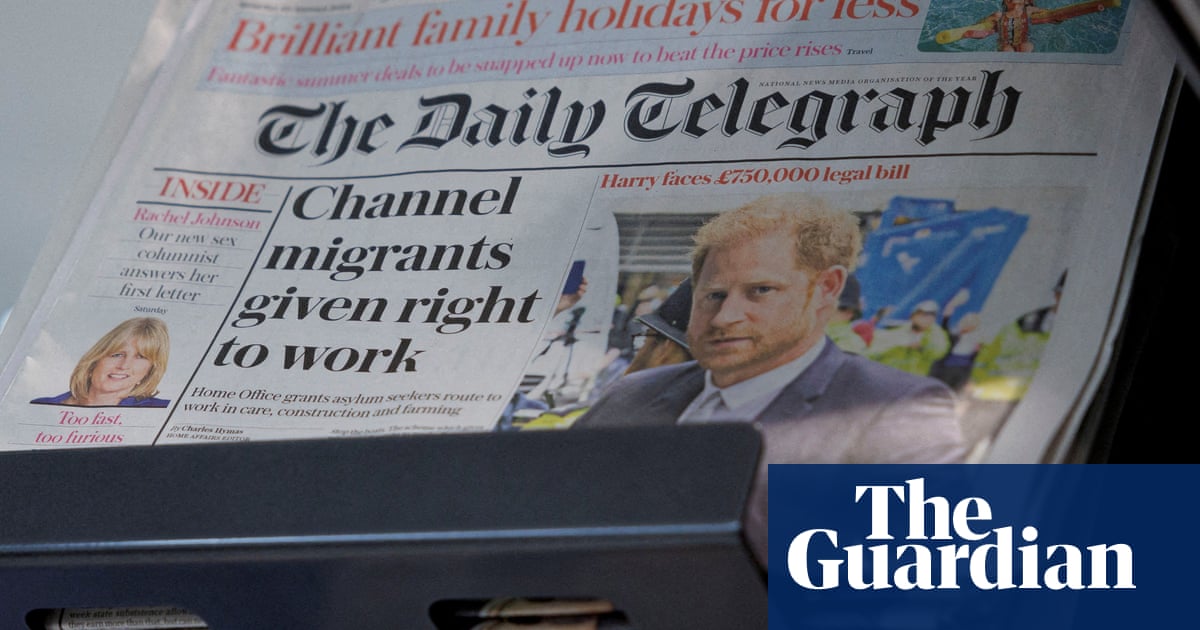
Every vulnerable child has access to school during lockdown, right?
Our daughter, Liora Sarnaik, age 13, has an education and health care plan and a social worker, so meets the government’s definition of vulnerable and should have been able to go to school when lockdown started. I actually thought I might be one of those people who work from home, learn how to bake a cake, sort through the attic, have Zoom chats. But Liora hasn’t been at school.
Today there are only 15 children attending Liora’s excellent special needs school, Downs View in Brighton. Normally there are more than 100. Liora is not one of the 15: these are all children who live in residential care because their families have not been able to cope with caring for them. So they don’t have a choice about going to school.
Liora has three life-long conditions: uncontrolled epilepsy, a chronic kidney condition and autism. She can’t speak and she’s doubly incontinent. She’s beautiful, upbeat and humorous and her father, Rahul, and I adore her.
I desperately want to send her to school because without it she is home full-time and needs someone to care for her, all day every day, from the moment she gets up to the moment she sleeps, no weekends off. My last day off was before lockdown.
So why are we not sending her to school? On the first day of the lockdown, I spoke to a school staff member on the phone. “It’s up to you, of course, but I wouldn’t send her,” he said. “I can’t see how it can be safe.”
Many of the pupils, like Liora, don’t have language, they can’t speak or understand more than simple words such as food, drink, toilet. The majority have saliva issues; they dribble and wipe their mouths on any available person or surface. They don’t know how to wipe their noses, they are not able to wash their hands without help – and often resist it. They don’t know how to social distance, they don’t know anything about the pandemic. Many are also violent to parents and teachers and they are not able to stop biting, punching and kicking. Liora is not violent to others, but she is to herself, banging her own head with her fists when in pain or frustrated. She needs close physical contact at all times to be cared for properly.
Liora’s headteacher, Adrian Carver, says if he lets more children into school, they could simply die of contracting coronavirus. These are his words, not mine, because it will be impossible to keep them – and his staff – safe. He’s having to turn desperate parents away, which he hates doing, as he knows how hard it is for us.
It’s pretty glib, then, of the government to announce that all children meeting the vulnerable criteria will receive an education. Clearly he has no understanding that thousands of disabled children can’t go to school, and thousands of families in utter crisis are having to care for their children full-time. The Disabled Children’s Partnership has just launched a survey focusing on the “hidden” lives of families with disabled children during lockdown; the findings will be announced some time in May, and I expect there will be many stories like mine.
Parents like myself can’t provide what a school can offer. We have constant big challenges with personal care, with behaviour, and with sleep deprivation, as our children are often up in the night. As well as being on the receiving end of violence. “Today I’ve been punched, kicked, had an umbrella smacked around my head, been screamed at, he’s smashed up the house AGAIN,” a parent wrote on one of my WhatsApp groups. Without school, it’s not only our children who are vulnerable, it’s the whole family: siblings hide in their rooms to get away from the behaviour, parents are close to breakdown. Liora’s father and I have a sense that we are expected to just suck it up.
So what do we need? I want recognition at the highest level for families caring for their disabled children. I want to know that, if Liora’s dad and I fail to survive looking after her full-time, there will be a place for her in residential care, a place she can be safe. However, there are no places in residential care in normal times, never mind in lockdown.
And I want professional carers to be valued and paid properly for their extremely specialist skills caring for children like Liora. Skilled carers leave their jobs because their wages are so low. Us parents are in a constant fight with each other, first to get carers and then to keep them – we are like rats in a trap.
It’s about recognition. It’s about not being forgotten.
• Beverley Cohen is a carer for her daughter and a media manager











